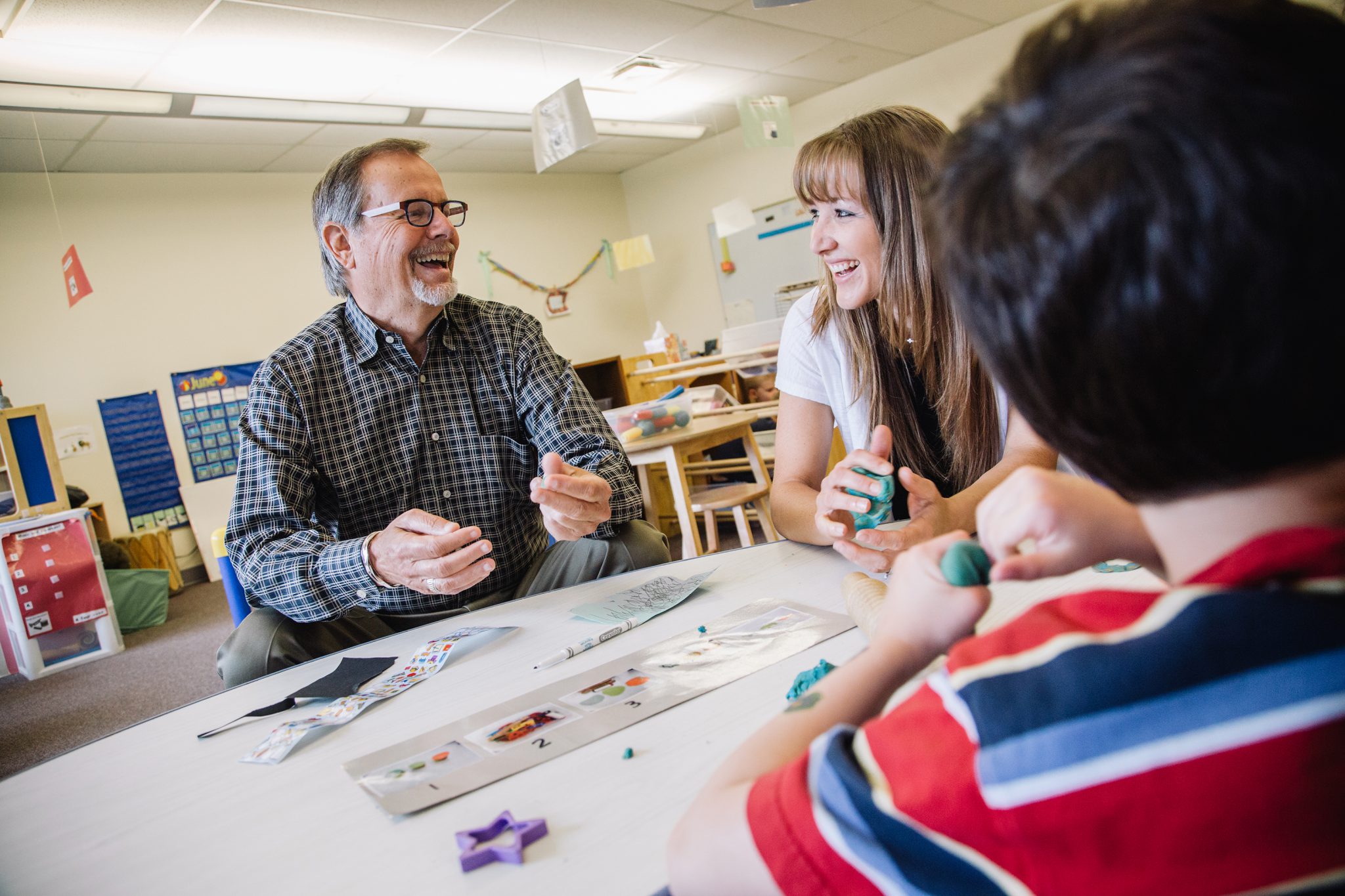CU Denver has long been one of the nation’s leading autism research universities. Phil Strain, professor of Early Childhood Special Education in the School of Education & Human Development, is a major driver and innovator behind that expertise. He developed the LEAP model of inclusive services for young children with autism in 1981. Since then, Strain has been actively improving personalized treatments, interventions and outcomes for young children with autism and their families. Somehow, he has also found the time to publish 300 scientific papers.
Now, Strain and his team at CU Denver’s Positive Early Learning Experiences (PELE) Center have even more reason to collaborate and serve families who are impacted by autism. In the last several weeks, Stain has secured four new autism-related grants. The sub-awards to CU Denver total more than $4,726,500. Funding comes from three divisions in the U.S. Department of Education: Institute of Education Sciences; Office of Special Education and Rehabilitation Services; and, the Office of Innovation and Improvement. The projects involve major partnerships with University of North Carolina at Chapel Hill, University of South Florida, Metropolitan Nashville Public Schools and Stanford Research Institute.
A growing number of children under the age of five are in the need of high quality early interventions and special education services. “Current prevalence of the rate of autism in the U.S. is one in 68,” said Strain. “Research over the last 37 years on the LEAP model has shown that this inclusionary program produces positive behavior change on all the behavioral manifestations of autism. If children continue in inclusive settings, they maintain their behavioral improvement through at least third grade.”
“Access to typical peers who are taught to facilitate interaction with their classmates with autism is arguably the most widely replicated and the most powerful intervention available to impact this key behavioral deficit characteristic of autism,” continued Strain. “National statistics show, unfortunately, that children with autism are the least likely group to be afforded inclusive services. These grants are designed to help create the systemic changes needed in the organization and funding of service delivery needed to facilitate inclusion and to provide practitioners with a set of evidence based practices to maximize the effects of inclusion for ALL children involved.”
New grant specifics:
LEAP Sustainability: Exploring Malleable Factors that Predict Teachers’ Initial and Long-Term Fidelity
· Sponsor: Department of Education, Institute of Education Sciences
· Total four-year funding amount: $1,399,993
· Period: 9/1/17 – 8/31/21
· Principal investigator: Phil Strain
The findings of this project will provide useful information in the broader context of ensuring that evidence-based early autism interventions are sustained across time. The study will include work in 150 classrooms in Colorado, Florida, Iowa, Massachusetts, New Jersey, Oregon, Pennsylvania, South Carolina and West Virginia.
Early Childhood Technical Assistance Center
· Sponsor: Department of Education, Office of Special Education and Rehabilitation Services
· Primary grantee: University of North Carolina at Chapel Hill
· Total five-year CU Denver subaward amount: $1,299,992
· Period: 1/1/18 – 12/31/22
· CU Denver PI: Barbara Smith
This grant will support programs that serve young children with disabilities and their families, birth to five years. A team of national experts will increase capacity of state early intervention and preschool special education coordinators, so that states implement high-quality systems and deliver high-quality services to young children with disabilities and their families.
Technical Assistance Center on Positive Social, Emotional, and Behavioral Outcomes for Young Children
· Sponsor: Department of Education, Office of Special Education and Rehabilitation Services
· Primary grantee: University of South Florida
· Total five-year CU Denver subaward amount: $1,331,856
· Period: 11/1/17 – 10/31/22
· CU Denver PI: Phil Strain
This grant will focus on three areas: providing technical assistance to state leaders who want to adopt and scale up the use of the Pyramid Model to address social emotional development, prevent problem behaviors, increase inclusion and prevent racial and gender disproportionality in preschool discipline practices; providing intensive training to coaches in various states who wish to implement the Prevent-Teach-Reinforce model to address the most serious and chronic problem behaviors of young children, and technical assistance to sites wishing to implement best evidence practices for preschool inclusion.
Pyramid Model Expansion to School-District Implementation in Preschool and Kindergarten Classrooms
· Sponsor: Department of Education, Office of Innovation and Improvement
· Primary grantee: Metropolitan Nashville Public Schools
· Total five-year CU Denver subaward amount: $694,696
· Period: 10/1/17 – 9/30/22
· CU Denver PI: Phil Strain
The grant team will focus on coordinating project evaluation activities with Stanford Research Institute, the external evaluator, and training school counselors and coaches in Nashville to use the Prevent-Teach-Reinforce model with fidelity.
The collaborative research approach will also help CU Denver faculty train the next generation of autism researchers. Dr. Strain plans to involve CU Denver doctoral students in his research, whenever possible.

